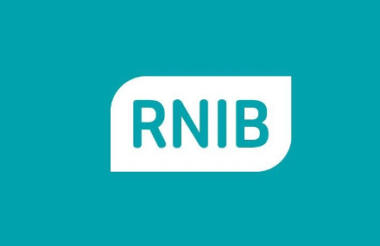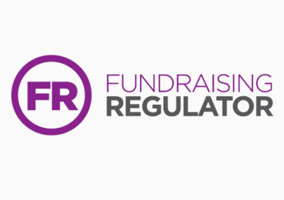The Fundraising Regulator has found that the RNIB has breached the Code of Fundraising Practice in an as yet unpublished decision, following a complaint from a member of the public in April 2016.
The Fundraising Regulator found that the RNIB was not making “all reasonable efforts to monitor” the compliance of one of its fundraising agencies at the time the complaint was made against them in April 2016. On that basis, the Fundraising Regulator found the charity had breached section 4.2(b) of the Code of Fundraising Practice.
The agency in question, YFR, was also found to have breached the Code in relation to issuing solicitation statements, although the Fundraising Regulator concluded that an individual fundraiser at the heart of the complaint was to blame and not the agency's supervisor.
The regulator said: “The YFR supervisor appropriately checked with the individual fundraiser whether the statement had been made and was told that it had been when that was not the case”. The regulator found therefore it could not “hold the supervisor to account for the actions of the individual fundraiser”.
A spokeswoman from RNIB said: “We always appreciate and welcome feedback and strive to achieve best practice in our fundraising work. This incident happened over a year ago and in the time since we have put in place further measures to ensure the highest standards are met by the agencies working on our behalf.”
A spokeswoman for YFR told Civil Society News that the fundraiser in question “left YFR before the complaint was accepted by the Fundraising Regulator” and said the breach was simply the result of “inexperience and human error”.
The Fundraising Regulator said: "We are pleased to see that the RNIB has made progress since the problem was reported and that the charity is fully committed to ensuring that both itself and its fundraising agencies are totally aligned with the Code of Fundraising Practice.
"The issue has highlighted the need for clear private site fundraising guidelines, which is why we have launched a new private site rulebook. We look forward to continuing to work with RNIB and all private site fundraisers to ensure that this fundraising is undertaken ethically and transparently.”
The complaint
The investigation begun after a complaint was made to both RNIB and YFR by a Mr Dunne in April 2016. Dunne’s complaint said that “both parties were conducting direct debit fundraising campaigns at locations that do not permit such activities on their premises”. YFR were not fundraising for RNIB at that time.
In May, Dunne made an additional complaint to the RNIB, claiming that YFR fundraisers at the premises (a supermarket) had been asked to leave by the store’s management, after he personally pointed out that direct debit fundraising collections were not permitted by the supermarket. He also said that he “had agreed to donate to the charity [RNIB] but the fundraiser had not provided a solicitation statement which is a legal requirement”.
Following Dunne’s second complaint in May, RNIB responded to him saying it would be investigating his complaint and said “disciplinary action would be taken against the fundraiser” if it was found that no solicitation statement had been made during their interaction. It also answered “a number of questions” put forward by Dunne following the incident surrounding its training and monitoring protocols surrounding agency fundraisers.
The regulator also contacted the supermarket in question and were told that “it was not head office policy to allow direct debit collections to take place in their stores”.
YFR subsequently “cancelled all future bookings with the supermarkets they had spoken to”.
Dunne sent the regulator “video footage of the interaction” he had with the YFR fundraiser. The fundraiser “gave information about the RNIB and explain how its lottery campaign worked”. The fundraiser also “started to fill in electronic donation form on an iPad, asking for Dunne’s name, address and bank details”.
The footage also showed that, after this interaction, the fundraiser’s supervisor asked if they had “explained all of this” to Dunne, while pointing to the iPad and the fundraiser said that they had. Dunne was subsequently asked to sign the bottom of the donation form.
RNIB sent the regulator a copy of the form, signed by Dunne, for which the solicitation statement for the campaign sits above his signature.
Findings
The Fundraising Regulator concluded that the RNIB “did not have its own mystery shopping programme in place to monitor the conduct of YFR”. It also found that the charity “sought to review the results” of YFR’s own mystery shopping programme. Nor did RNIB monitor any “welcome calls” made by the agency to new donors.
On that basis, the RNIB was found to have breached the Code of Fundraising Practice.
The regulator found that the YFR fundraiser did not read the campaign’s solicitation statement aloud to Mr Dunne and thus found that YFR had breached section L10.1(d) of the Code. Although the regulator exonerated the YFR supervisor.
The Fundraising Regulator did not find “any record of YFR deliberately misleading stores about the nature of the campaign that it was operating on the RNIB’s behalf” and so did not find the agency to have been in breach of Section 5.2(b) of the Code.
The Fundraising Regulator has since published a new, private-site fundraising specific rulebook, following a review of face-to-face fundraising it conducted with the Institute of Fundraising.
Related Articles












